Saving the World, Loving the Expendable: Mickey 17 and the Role of Black Women in Sci-Fi
People are mad about Mickey 17. I think I know why. Let’s take it there.
I walked out of Mickey 17 with a million thoughts swirling. If you go in blind— without knowing who the director is—I think you’ll still enjoy it. The film’s humor is biting, its satire unmistakable, and its absurdity unavoidable. That said, if satire’s not your thing, this movie might not be for you. It’s unapologetically on the nose, grinding for those who might prefer a more subtle route to their intellectual destination. But for me, that’s what makes Mickey 17 such a great ride. In a genre that has long sidelined Black women or cast them as mere sidekicks, Mickey 17 dares to place Naomi Ackie at the center of its cosmic intrigue—a reminder that from Lt. Uhura to Niobe, Black women have always belonged among the stars.
** Warning spoilers ahead**
In this space, I center Black feminist perspectives. Like many, I watch movies as a form of escapism, trying not to think about my identity beyond being just another person. That shift in perspective usually only happens when I'm forced to confront it. Most films don’t require me to—people who look like me are rarely the focus. But in Mickey 17, that wasn’t the case. The film centers a Black woman, not just as a lead character but as essential to the plot.

I believe that this was Bong Joon-ho’s intention—a commentary on classism, colonialism, and social hierarchies, much like in his other works. When Nasha first appeared on screen, played by Naomi Ackie, I had a visceral reaction. I leaned over to my person and said, “Of course, why do we always have to save the day?” Probably out of the anticipatory frustration of a tired trope - Black women in film are often depicted as sacrificial lambs who give their all and receive nothing but erasure in return. But as the movie went on, I realized how extraordinary it was that we got to be that in this film. It was an intentional decision to have Nasha save the colony multiple times, especially in the climactic scene where she faces off against Mark Ruffalo’s Trump-infused dictator character as he prepares to commit genocide on the Indigenous creepers living on the “new” planet. To have Nasha be the one to confront his evil felt like a cathartic release. I was reminded at that moment of the 92% of Black women in the U.S. who voted against our sitting president. Black women are always sounding the alarm, often to a bitter and dismissive audience, where our cries fall on deaf ears.
I also examined Nasha’s character from the perspective of our film’s anti-hero Mickey. The introductory sequence of the film is a masterclass in world-building. Led by Rob’s skillful effort, we are subjected to what feels like endless scenes where time disappears and the only thing that's guaranteed is suffering. Ho and Pattinson infuse this sequence, meant to dehumanize his character, with humor - to pull us through the torture missions he is forced to endure as an expendable. In the film, an expendable is a subhuman of sorts who signs up for a life of inescapable death, to be used as a science experiment for the benefit of the new colony. But when Mickey and Nasha fall in love (when he's still the OG Mickey) we get to witness his true humanity.
One of the more refreshing aspects of Mickey 17 is the reversal of a familiar trope in Hollywood films: the black woman-white man dynamic. So many narratives feature the trope of the white savior—a well-off, usually virtuous white man swooping in to save the tragic or suffering Black woman. This trope has been a staple of mainstream cinema for decades, where the Black woman’s role is often to be the object of saving, the one who is marginalized, and in need of rescue.
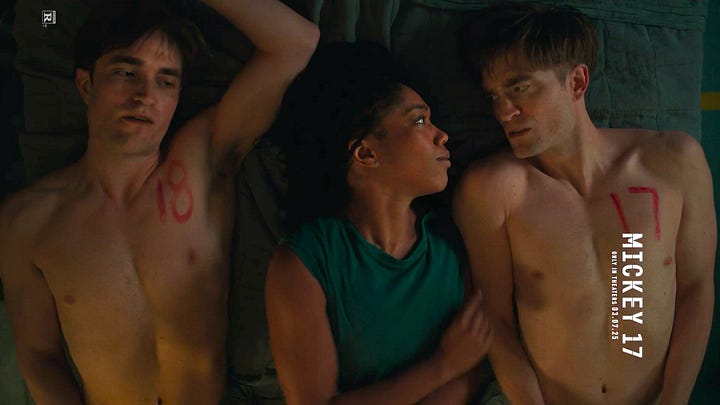
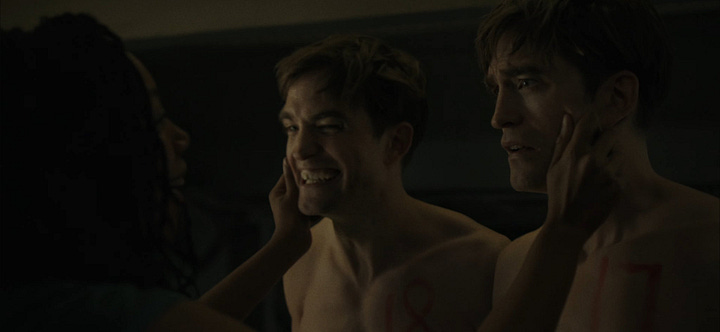
But Mickey 17 does something different. Instead of the typical dynamic, where a white male protagonist is the hero, it’s Nasha who is the one who brings Mickey back to life, not in a literal sense- the printer does that- but by reminding him of his humanity. Throughout the film, Mickey goes through numerous iterations, each one slightly different from the last. Yet the only thing that anchors him to his sense of self is Nasha’s love. She doesn’t hesitate to care for him despite his certain death, and in doing so, she reveals the core of who he is. She’s not just a supporting character or a sidekick to Mickey’s journey; she’s central to his emotional and moral awakening. This reversal is significant because it challenges the one-dimensional, often patronizing roles that Black women are usually assigned in stories involving interracial relationships. Instead of being the damsel in distress or the "tragic" figure, Nasha is the source of strength, wisdom, and emotional depth in the narrative.
While I want to separate the art from the artist, the parasocial dynamic surrounding Pattinson makes it impossible to ignore the subtext. His past with FKA Twigs—how his white fans’ jealousy fueled relentless harassment, how he moved on after their engagement to start a family with a white woman, and how she later spoke about the toll it took on her mental health before entering an abusive relationship with Shia LaBeouf—lingers in the cultural ether. Pattinson may not have been conscious of his own history seeping into his performance in Mickey 17, but it’s hard to ignore how his private life is treated with care and discretion while Black women like Twigs are left to pick up the pieces as their personal lives become public spectacle.
The Film flips the power dynamic in a moment that’s rarely seen on screen: Mickey rejects a white woman in favor of Nasha. In many films, the white woman is often portrayed as the “pure” choice, the idealized figure that the male protagonist gravitates toward. But in Mickey 17, Mickey’s preference for Nasha, despite the pressures of a society that elevates whiteness, sends a message of resistance. It suggests that love, in its most authentic form, doesn’t follow societal expectations. Mickey’s choice isn’t just a romantic one—it’s a subtle act of defiance against the white supremacy hierarchies that are being reinforced by the absurd leader Mark Ruffalo portrays. Black women are not just subject to the whims of the dominant narrative but are given agency and power. In this film, the Black woman is not only loved but also the one who drives the emotional and moral evolution of the white male protagonist. It’s a small but meaningful shift that speaks volumes about the possibilities for more equitable storytelling.
Is Nasha a bit off for falling in love with a man who society calls “damaged goods”? Probably—but I think that’s a callout to the conditions under which Black women are forced to love, endlessly, no matter the circumstances. Despite this, she continues to love every iteration of Mickey, no matter how weird, docile, angry, or depressed each new Mickey might be. He suddenly fears death (as Mickey 17) because he can't be with Nasha. He experiences jealousy because Mickey 18 gets to be with her. He doesn’t mind dying a thousand times as long as he can wake up to her. He rejects the white woman, chosen by their leader for breeding a "pure" race, in favor of Nasha, subtly defying the societal expectations of his world. The audience often hears Rob’s cartoonish voice come over the speakers, describing his longing for her while he’s out on his suicide missions. These artistic choices didn't feel like a mistake or a diversity quota. If you are a fan of Ho’s previous work you know how meticulous and detail-oriented he is.
If you love sci-fi comedy and adventure, you’ll enjoy this movie. Is it difficult to follow and a little scattered at times? Yes. Was I waiting for a grand climax that never came? Kind of. Is it a heavy burden for us as Black women to save the world? Absolutely. But the film still makes it worthwhile.
It’s stylistically gorgeous—the set is beautiful, the tones are stunning, and the editing and use of sound are great. Rob gave an insanely nuanced performance. His use of his face as a tool to distinguish between the two Mickeys, his physical acting, and his overall effort was incredible to watch. It reminds us all, every time, how great he is. Naomi Ackie gave a beautifully impressive performance. She stole the screen every time she was featured. And Mark Ruffalo was hysterically good, truly leaning into the sick mind and fragile ego that men like his character possess. Overall, I would watch it again, only if it's for their intricate performances.
To all the critics who are calling the movie a flop—it’s probably because you feel attacked by how on-the-nose the story is. Ho’s refusal to center your desires for a clean, pretty ending is upsetting to you. The callouts to white supremacy, the clown show that is happening in our country, and the simplicity of the mental manipulation that has gotten our society to this point - where science fiction doesn’t feel too far from reality - have left y’all uneasy. Unfortunately for you, that was Bong Joon-ho’s point.


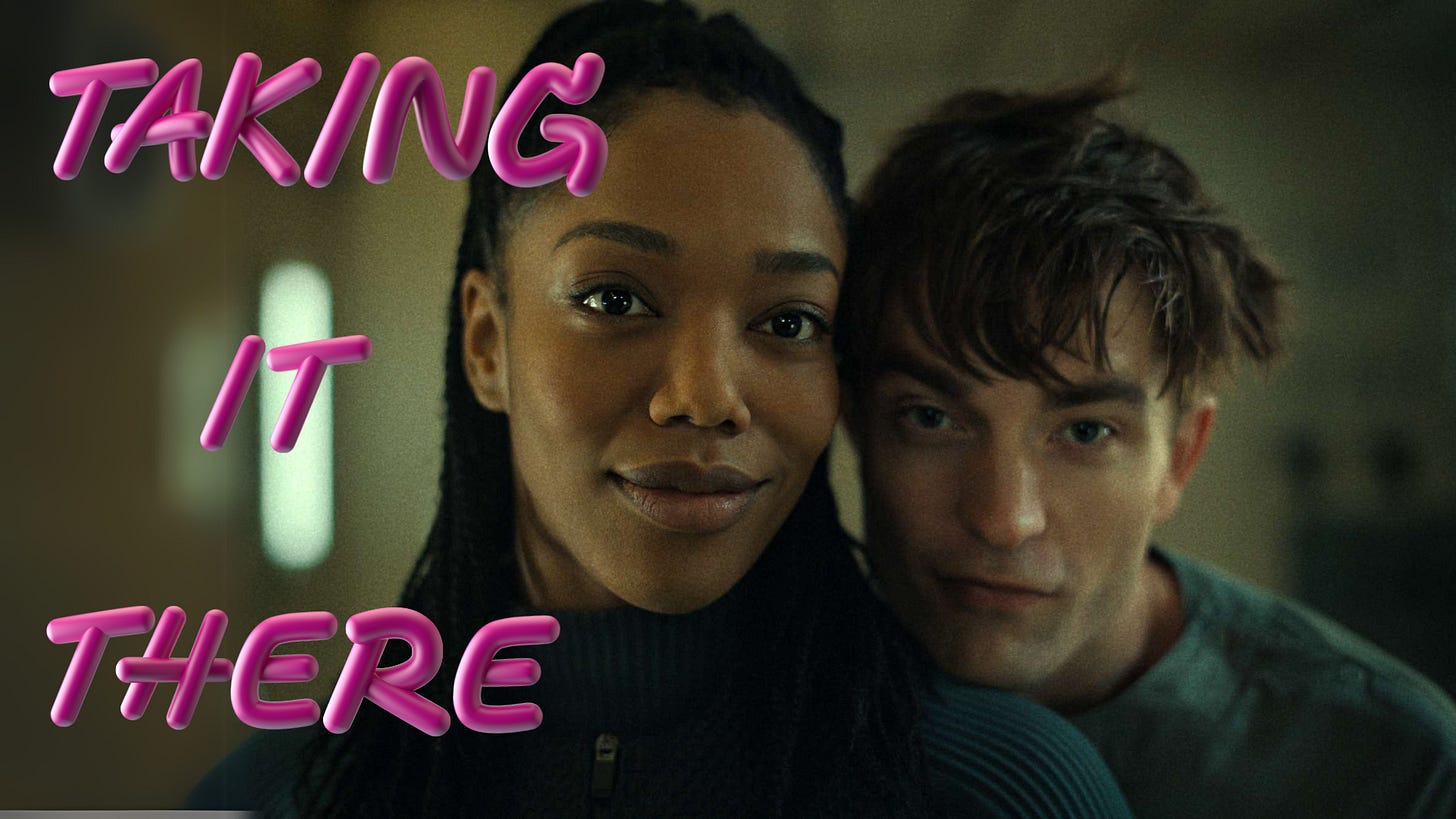

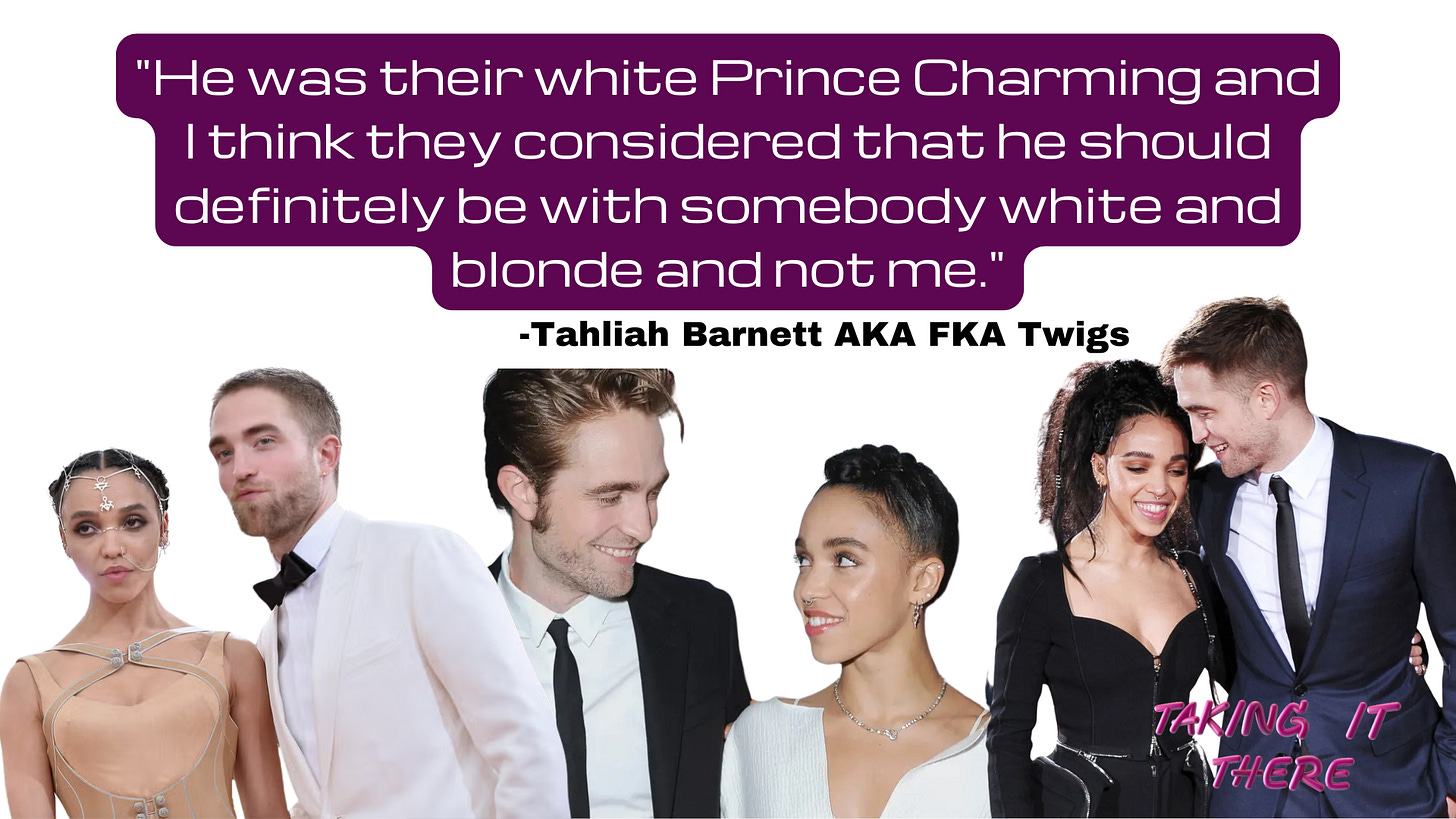
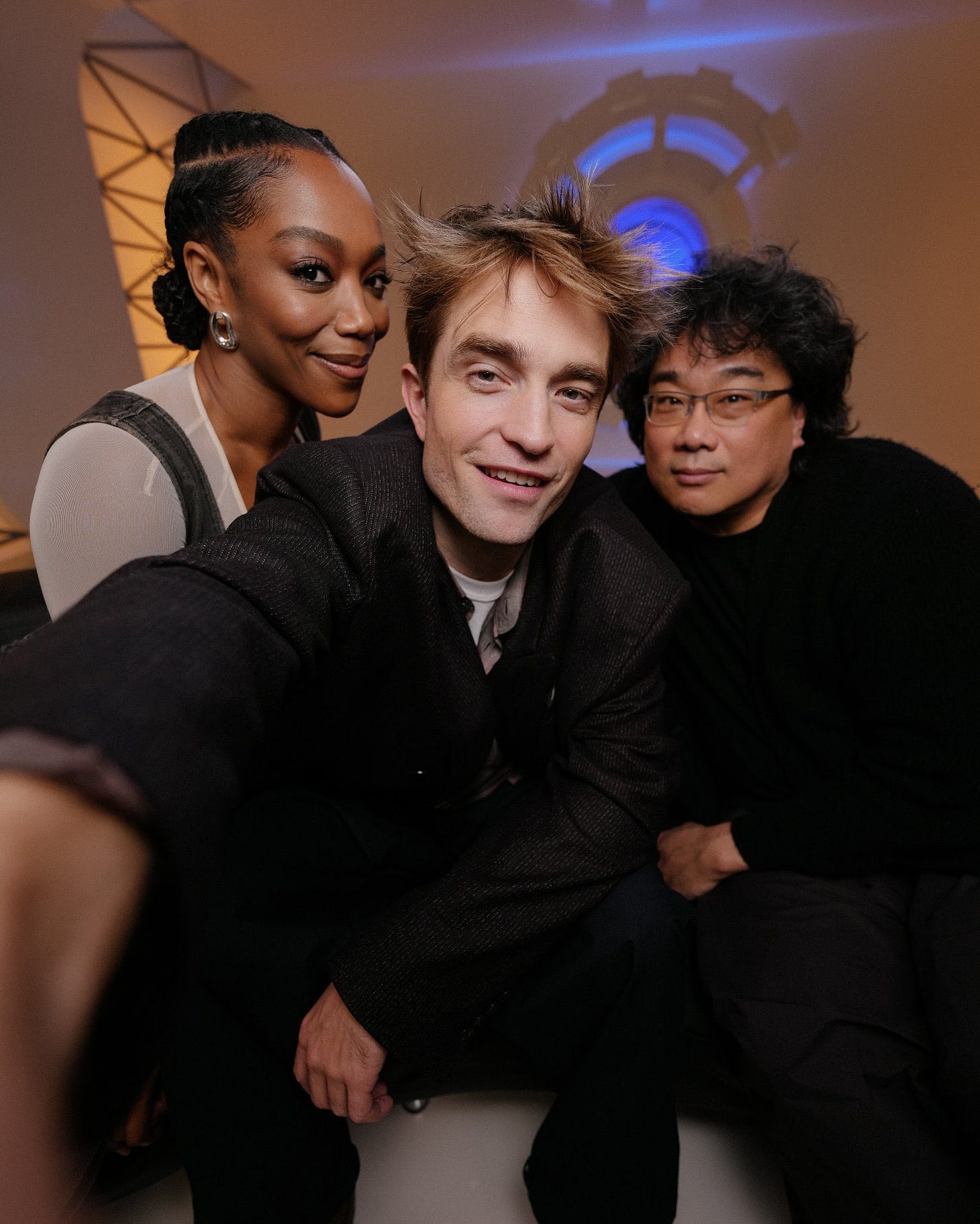
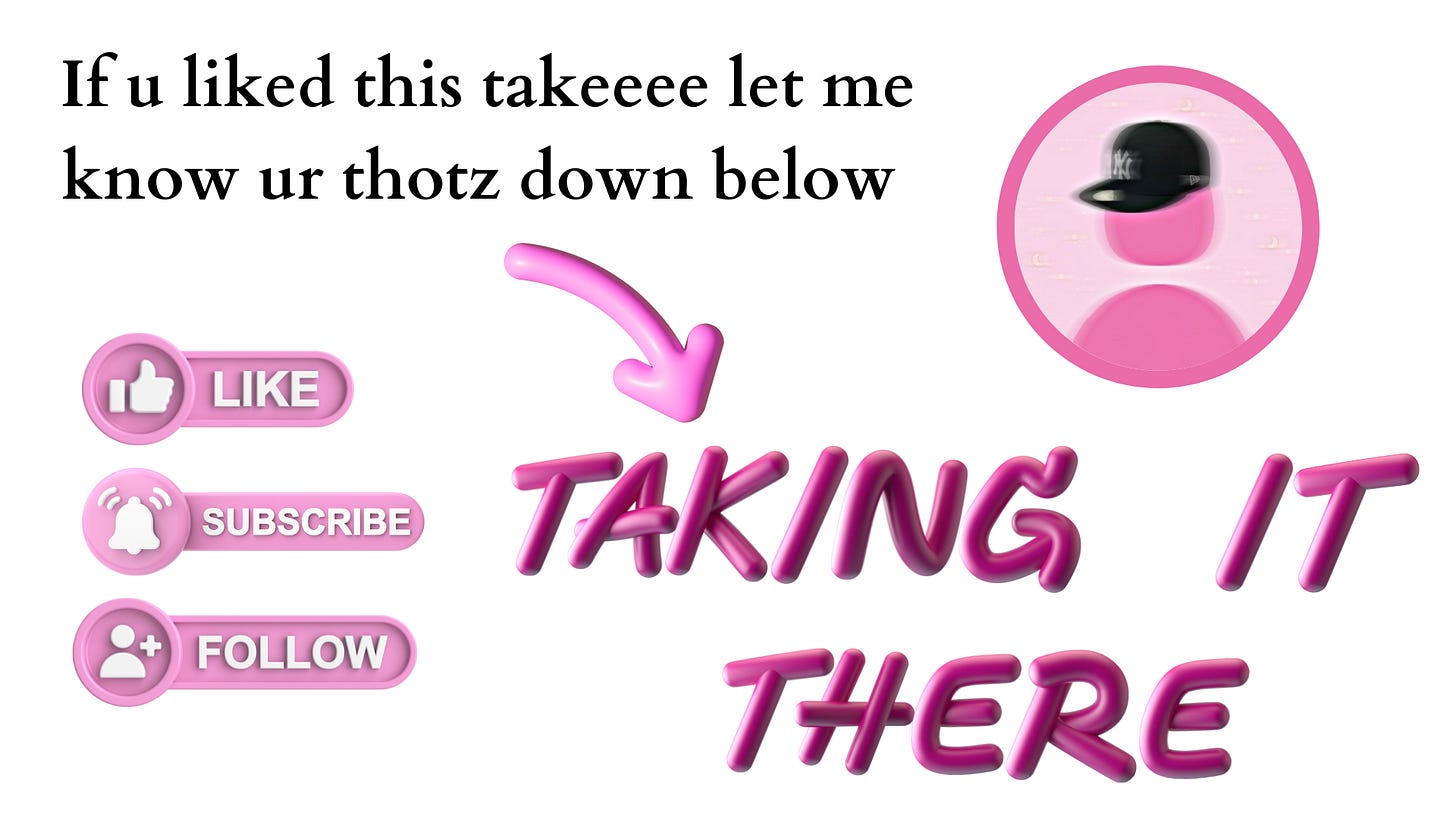
Love this but I was waiting for you to quote Twigs when she sang, “I’ve never seen a hero like me in a Sci-Fi” and then they cast a Black British actress to play her ex’s love interest in a film 👀
Love this write up. Between this and Challengers, it feels like the tide is changing for black female characters in film